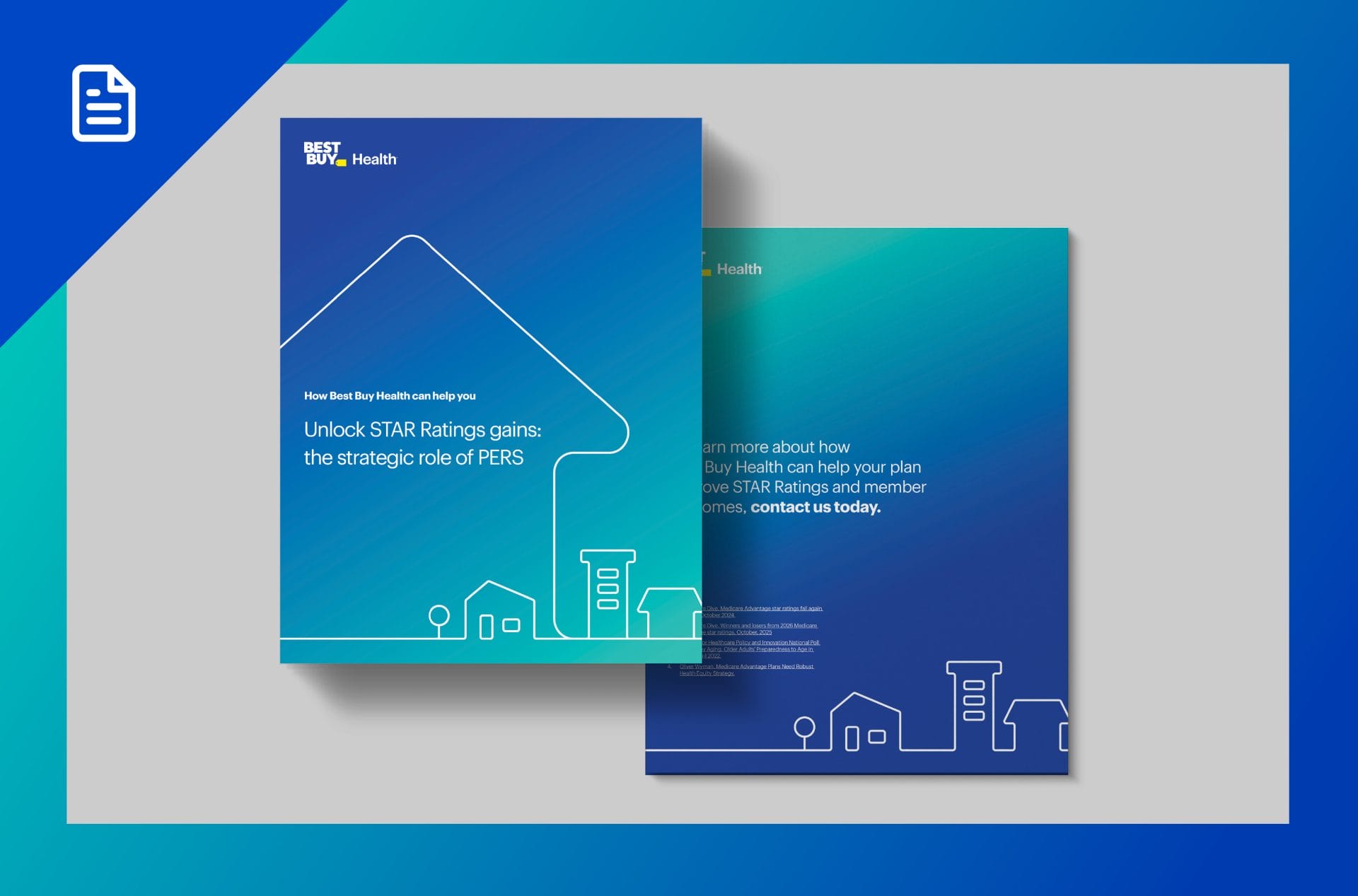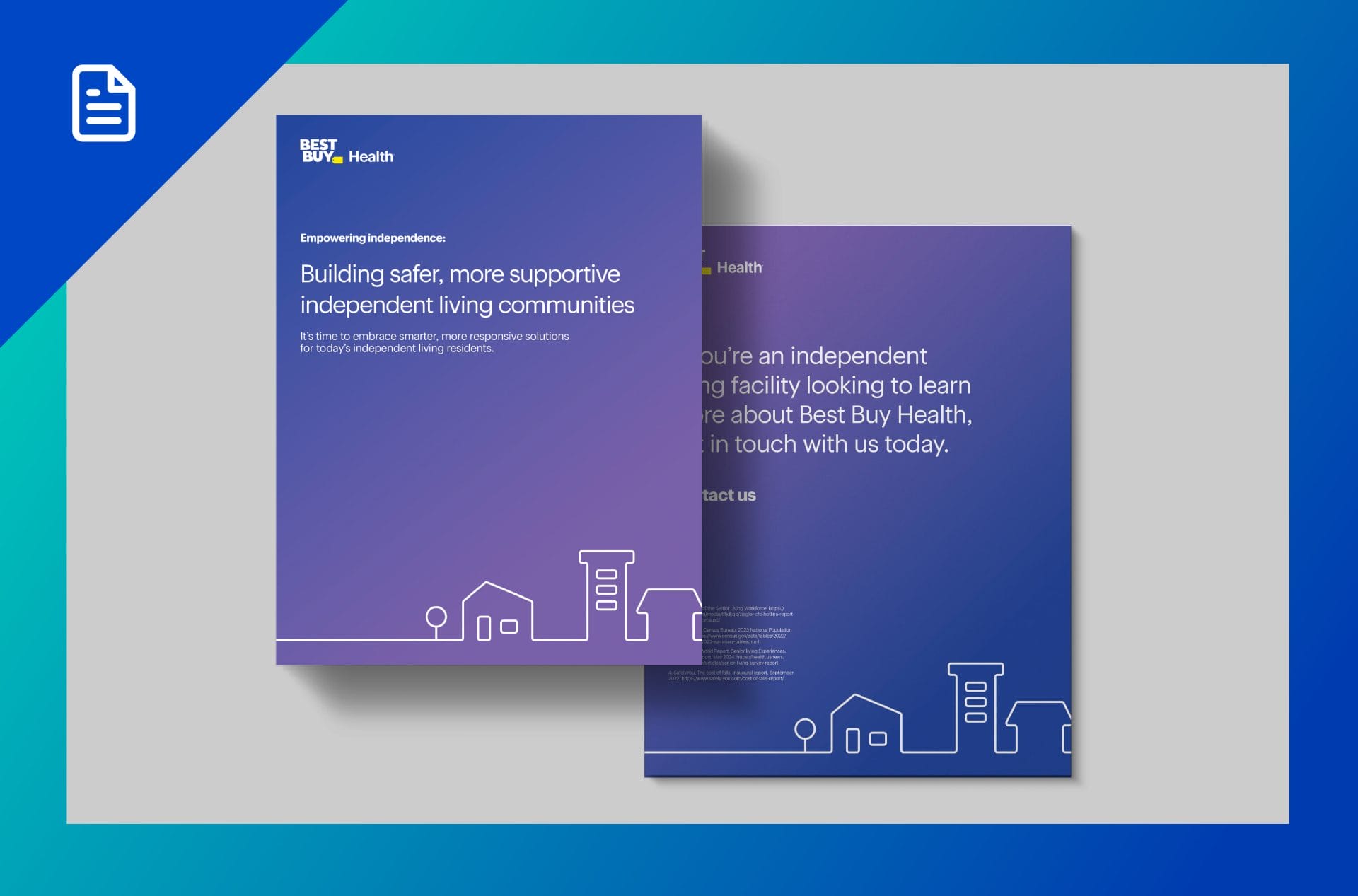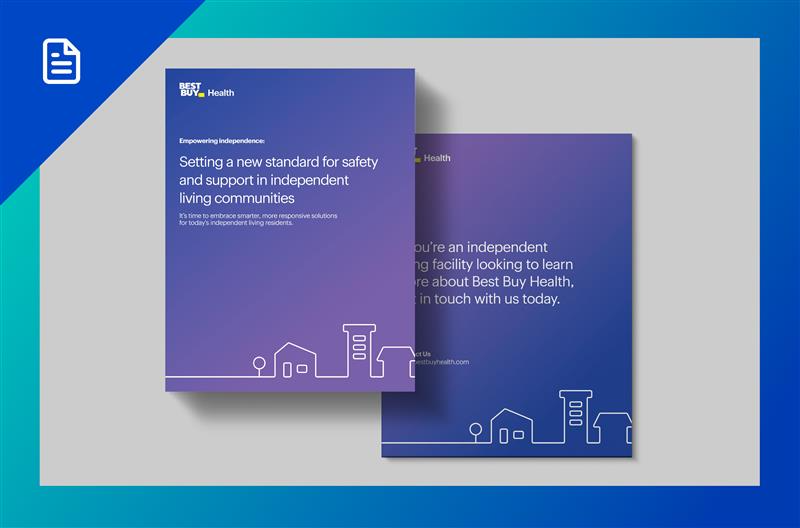Digital Literacy Assessments & Interventions in Healthcare: A Critical Part of an Aging-in-Place Strategy
As healthcare continues to evolve in the digital age, prioritizing digital literacy—especially among senior populations—is critical to ensuring equitable access to care and empowering older adults to navigate modern health technologies. With the rise of telehealth, remote patient monitoring (RPM), and other digital health experiences, understanding how to navigate these technologies is no longer optional—it’s a necessity for maintaining health and well-being, especially in the home.
Let’s explore why digital literacy matters and how health plans can address this growing need through digital literacy assessments and interventions.
What is Digital Literacy Within Healthcare?
Digital literacy refers to one’s ability to find, evaluate, and communicate information through digital platforms. The phrase “digital literacy” was coined in 1997 by Paul Gilster, who defined it as “the ability to understand and use information in multiple formats from a wide variety of sources when it is presented via computers.” Increasing digital literacy allows for individuals to better engage with all the technology around them, including healthcare technology.
This is critical as healthcare continues to be delivered in a breadth of new ways—from member portals to remote patient monitoring and telehealth services—and members need technical skills to fully benefit from modern healthcare services. This translates to skills such as:
- Using smartphones or tablets to access health information
- Navigating member portals and electronic health records (EHRs)
- Participating in virtual doctor visits
- Using wearable devices to track health metrics
- Using medical devices at home
- Navigating health-related websites
These skills are becoming increasingly important, especially for older adults managing chronic conditions, fall risks, and more from their home.
Regulatory Shifts Supporting Better Digital Literacy
Health plans are facing growing regulatory incentives to address digital literacy among their members. The Centers for Medicare & Medicaid Services (CMS) has recognized the importance of digital skills in healthcare delivery and is incorporating digital literacy into various quality measures:
- Star ratings: CMS is considering including digital literacy metrics in Medicare Advantage Star Ratings, which directly impact plan reimbursements.
- HEDIS measures: The Healthcare Effectiveness Data and Information Set (HEDIS) is exploring measures related to digital engagement and literacy.
- CAHPS surveys: Consumer Assessment of Healthcare Providers and Systems (CAHPS) surveys will be updated to be more user-friendly, and possibly delivered by email as of January 2025.
- Hospital readmission reduction program: Hospitals with high readmission rates receive significant penalties. It’s been shown that members who receive aftercare through a digital health program are less likely to require readmission compared to those who don’t participate in a digital health program.
These regulatory changes and incentives reflect a broader understanding that digital literacy is becoming a crucial part of driving improved health outcomes and reduced healthcare costs.
Digital Literacy’s Role in Bridging the Health Equity Gap
Experts also recognize digital literacy as a key social factor that impacts health, particularly by influencing how easily people can access healthcare services. In fact, digital literacy is now considered a social determinant of health (SDoH). Without proactive solutions to improve digital literacy, there is a risk of exacerbating health disparities among already vulnerable populations. As healthcare becomes more digital, the ability to use technology is increasingly crucial for effectively managing one’s health.
Evaluating members’ skills through digital literacy assessments help health plans tailor care, prevent negative outcomes, and reduce health equity gaps.
How Health Plans Can Improve Digital Literacy for Members
Start with a digital literacy assessment
For health plans looking to support their members’ digital literacy, the first step is a digital literacy assessment. While there is no single, universally recognized digital literacy assessment specific to healthcare, health plans can leverage existing assessments or create their own formal and informal assessments to determine member digital literacy levels and their ability to participate in digital health programs. The evaluation should help identify:
- Current skill levels
- Areas for improvement
- Barriers to digital adoption
A well-designed digital literacy assessment should measure:
- Basic device usage skills (smartphones, tablets, computers)
- Internet navigation abilities
- Understanding of health-related digital tools (RPM devices, patient portals, telehealth platforms)
- Comfort and confidence with data privacy and security concepts
- Understanding of how their information is intended to be used
An example of a digital literacy tool includes the Health Literacy Framework (eHEALS), which measures an individual’s ability to find, evaluate, and apply electronic health information for health decisions. It uses an eight-question survey focused on online health information skills, the ability to access online health resources, and the confidence in using digital tools for health management.
The Conversational Health Literacy Assessment tool (CHAT) is another assessment that uses a brief, 10-question approach to understanding health literacy skills through dialogue, promoting open communication, and identifying strengths and challenges.
The Digital Health Readiness Questionnaire (DHRQ) is yet another assessment designed as a brief, simple questionnaire to measure digital readiness in patients in routine clinical settings.
These are just three examples of digital literacy tools used to assess individuals’ skills and readiness in using digital health resources, demonstrating that a range of options is available to health plans seeking to better understand members’ abilities to navigate and manage their health in the digital age.
Deploy digital literacy interventions
Once an assessment is selected and deployed, health plans can then create personalized digital literacy interventions for members. These interventions might include:
- Targeted training sessions
- In-home technology support
- Access to user-friendly devices or applications
- Ongoing support and resources
One innovative approach to digital literacy intervention is Geek Squad for Health. Inspired by the technology support services offered by Best Buy, Geek Squad for Health provides personalized, in-home technology assistance to members by offering:
- In-home setup of digital health devices
- Personalized training on telehealth platforms
- Troubleshooting support for health-related apps
- Regular check-ins to ensure ongoing comfort with digital tools
- Assistance using everyday technology to build confidence and support health and wellness goals long term
This type of intervention can not only improve digital literacy but also provide valuable social interaction for seniors, addressing multiple aspects of health and well-being.
Best Buy’s Geek Squad for Health supports care-at-home experiences across the country, where specially trained agents:
- Visit members’ homes to set up home health monitoring devices like blood pressure monitors and scales
- Teach members how to use their health devices
- Offer ongoing support through phone calls and follow-up visits
This collaboration helps members, especially older adults, use health technology at home more effectively. Learn more about this model.
The Impact of Improved Digital Literacy
Digital health has become a permanent part of how we receive care. Improving digital literacy for equitable access to care should be a top priority for everyone in the healthcare industry.
Investing in digital literacy can yield significant benefits for both health plans and their members, including:
- Improved health outcomes through better engagement with digital health tools and resources
- Reduced healthcare costs by preventing unnecessary hospital visits
- Enhanced member satisfaction and loyalty
- Better performance on regulatory measures like Star Ratings
By addressing digital literacy, we can ensure that all individuals, regardless of their technological skills, can benefit from digital health tools and services.
To learn more about how Best Buy Health can help support your digital literacy needs, contact us today.


